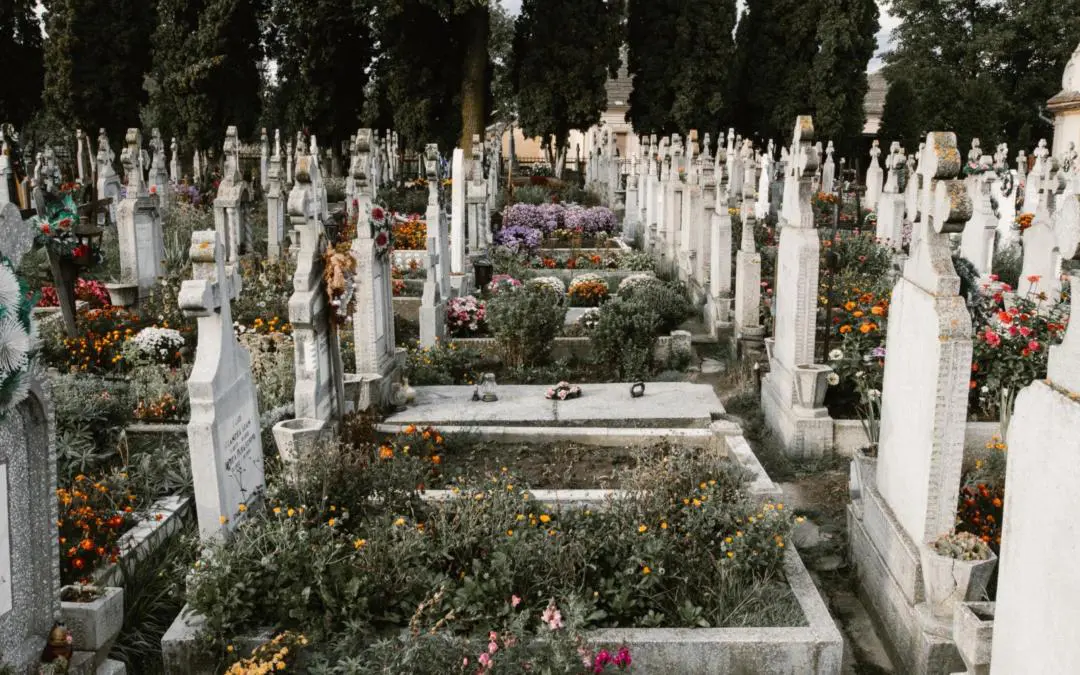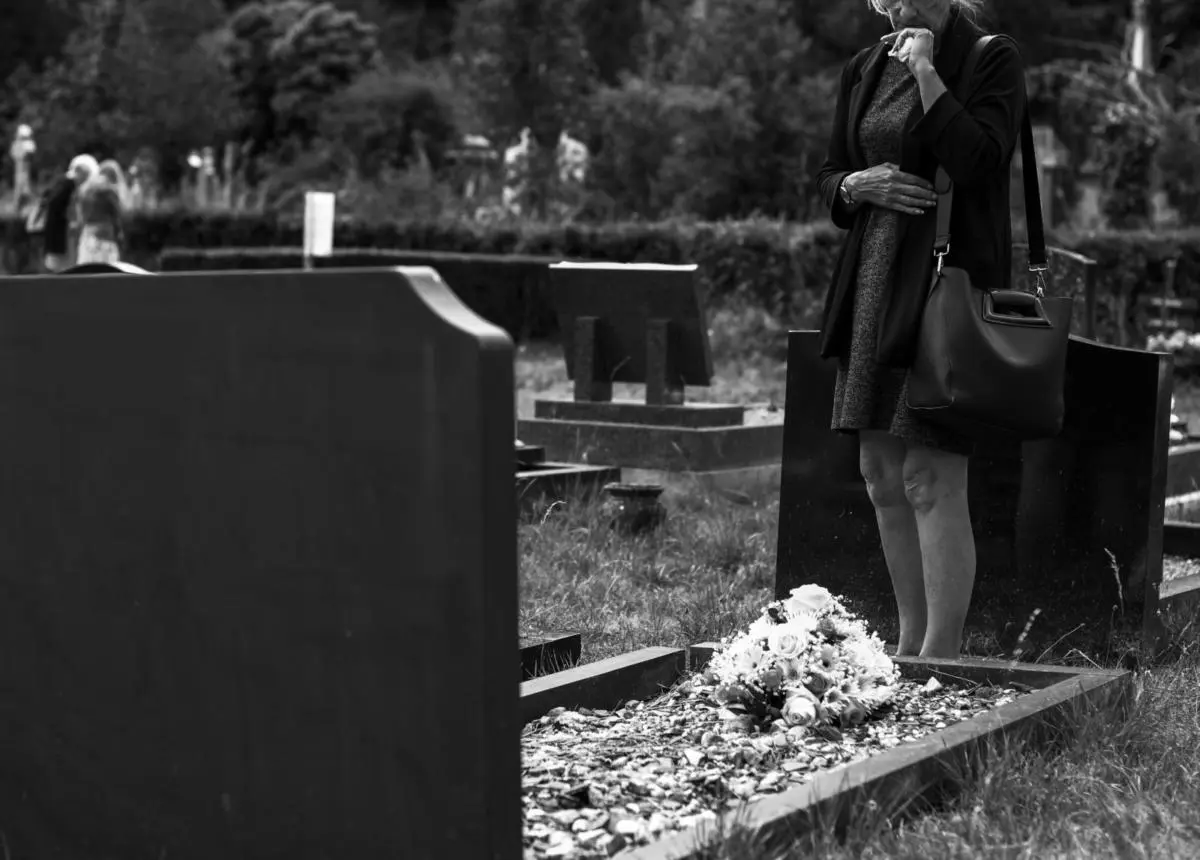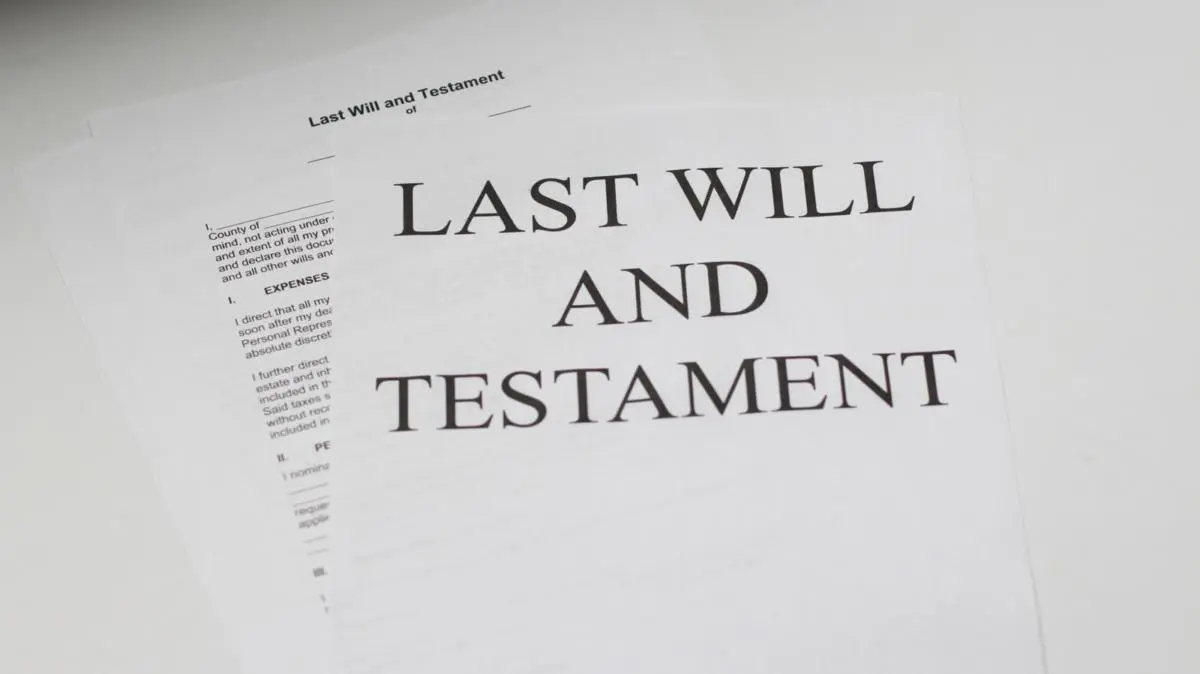They say there are only two sure things in life: death and taxes. We’ve published several blogs about taxes but what happens when you die in France? What should you do if you are bereaved? This blog outlines the main things you need to know and a list of useful websites.
Nobody likes to think about the end of their days, but the more resilient and perhaps organised amongst us do have some plans in place for when that time eventually comes. Which of course, it inevitably does, to all of us. In this blog we discuss how to plan for what happens after your death, and also talk about bereavement issues if you lose a loved one whilst living in France.
Bereavement
Should you suffer a bereavement while in France, there are several avenues you could follow for help and advice:
- Your consulate will be of great help, especially in case of repatriation of the deceased person. Local undertakers (pompes funèbres) are also very helpful and may be able to help with repatriation too.
- Check your health insurance policy to see whether repatriation is included and whether there are provisions to cover travel for close family members.More on repatriation further down.
Bereavement is, of course, a very difficult time and you should not be afraid to ask for help. Friends and neighbors can be incredibly kind at times like these.
The Practicalities
What Should you do in the Event of a Death?
If a death occurs at home, you should immediately call the fire brigade (sapeurs pompiers) by dialing the number ’18’ from any phone, or your local doctor. Try and keep the room cool by closing shutters, windows, doors and turning off any heating.
If death occurs in a hospital, it is likely that the local town hall will deal with the registration of the death, and you will be asked to supply the personal details of the deceased person, such as passport copy, social security card and health insurance details. If the hospital does not declare the death, they will give you a form to take to your local town hall. The deceased person will be kept at the hospital morgue and then you can arrange a transfer to the funeral parlour/home or your home. This must take place within 24 hours (or 48 hours if the body is embalmed).
A death must be declared at the town hall in the locality where the death occurred within 24 hours. Ensure you take as much personal paperwork with you as possible. As with any administrative procedure, they always seem to want something you haven’t got on you, and at a distressing time such as this, you’ll want to reduce the paperwork stress as much as possible. Ask a friend, neighbor or member of family if you have one there to help you.
And take along your own papers too (passport as ID, marriage certificate to prove your link to the deceased, for example). The town hall will give you an acte de décès (death certificate) and will send one to your consulate. It is recommended, however, that you also go to your consulate with your acte de décès to register the death. You should ask the town hall to give you several copies of the acte as you’ll need to send one off to the person’s insurers and other organisms that will require proof.
Organ Donation
Anyone who lived in the UK for more than 12 months between 1980 and 1996 is not allowed to give blood in France due to the risk of passing on Mad Cow Disease. This is because blood is stored in a bank, but organs are assessed on an individual basis so organ donation is allowed. Check out France ADOT at www.france-adot.org to apply for a card and more information.
Burial
Should you choose burial, this should take place within six days of the death, excluding Sundays and bank holidays. A full list of local undertakers will be available from your town hall, hospital or clinic, or you can look in the Yellow pages (Pages Jaunes). Undertakers are obliged to give you a breakdown of costs in writing and include obligations and optional extras.
Obligatory services include supply of the coffin, its handles and seal, preparation and closing of the grave or tomb for burial, or the cremation itself and the urn. Cross-border transfers require the coffin to be hermetically sealed. The costs of plots in your chosen cemetery is fixed and will appear on the undertaker’s quote. You are entitled to be buried in the commune in which you live, but if you wish a burial to take place elsewhere, you will need to ask permission, which may not always be given.
Optional services include embalming, washing, grooming and make-up, coffin accessories, help with the administrative paperwork, organisation of the funeral, flowers, vehicles, personnel, newspaper announcements or mortuary cards. The Association Française d’Information Funéraire can be found here for more information – www.afif.asso.fr. This includes a good French-English-German glossary of terms.
Cremation
Cremation must take place at least 24 hours but not more than six days after death. You will need to request an authorization from your town hall and provide a medical certificate stating that cremation will not pose a medico-legal problem. The coffin must be closed in the presence of a police officer, which involves a small fee. The urn containing the ashes may be kept at the crematorium for up to two months for free, allowing you to decide about any final ceremony.
Repatriation
If you choose to repatriate the deceased’s body (as opposed to cremation), you will again need a long list of documents. The cost of repatriation varies greatly but can be as much as €5000, and this is before funeral overheads in your home country. This is why it’s important to know whether these costs are covered under any insurance policy before making any decisions regarding this.
Religious Ceremonies
Contact your place of worship regarding this; most communes have a church, but you may have to look to larger towns and cities for a synagogue etc. Use your social network to ask whether there are any English-speaking clergy or celebrants available for a funeral ceremony.
Funeral Financing
You may present funeral bills to the bank of the deceased for a debit of up to 5000€ from their personal bank account (not joint) to cover funeral costs. Your private health insurance may offer some financial help, or the deceased may have had special insurance for this eventuality.
If you have problems raising the funds yourself, you can ask for help from your assistante sociale – details from your town hall.
Funeral costs, up to a limit, are tax deductible, so keep all receipts. Costs are generally deducted from the inheritance tax, but if there is none, then the deceased’s spouse or children can deduct costs from income tax.
After the Funeral
- Within a week of the funeral taking place, certain entities should be informed of the person’s death. These include Social Security, private pension funds, plus their employer, bank, notary and landlord if renting.
- Within a month, other insurance companies, banks and utility companies should be notified.
- Within six months, remaining jointly held responsibilities should be transferred into the surviving spouse’s name, eg vehicle registration documents (carte grise). By this point also the déclaration de succession should have been sent to the tax office and any tax due paid.
Inheritance and Probate
For many, the greatest worry about death is what will happen to their estate once they are gone. Will their loved ones receive what they are due, or what you’d like them to have, from your estate? There are a number of French structures that can be set up to protect your inheritors.
If a person dies in France, and if the deceased person was considered to have their primary residence in France, then French law applies to their estate. Under the Napoleonic French law, the succession follows the bloodline (favouring children, parents etc over the spouse).
In 2015, an EU Regulation known as ‘Brussels IV’ was introduced and allows forced heirship rules to be bypassed in certain circumstances, in which case you can make your own will. If you do, we strongly recommend that you seek legal advice from a professional specialising in cross-border succession law – it is an intricate and very complex issue.
Taking out a life insurance plan is another way to protect a surviving spouse. You can also put your wishes in a marriage contract, drawn up before a wedding. If you marry in France, by default, your legal position in terms of goods and property is governed under the régime de la communauté réduite aux acquêts. This means that all property or debts acquired after marriage (outside of inheritance) are communal property. However, you can draw up a contract with a notary (notaire) to record that your marriage shall be governed under the ‘regime of separate goods and property’ (régime de la séparation des biens), which means that, should you divorce, or one of you passes away, everything each of you owned before your union, or that was bought independently following the union, remains the property of that person, or indeed their inheritors. It is also possible to note ownership of certain goods and property in this same contract.
Bereavement Counselling in France
There are sites such as Counselling in France which list English-speaking counselors and their specialties on a region-by-region basis. They also have a helplines page.
See also the International Therapist Directory: ‘A listing of therapists, counselors, psychologists, and psychiatrists in France interested in providing culturally sensitive cross-cultural care for today’s international expat community’.
And another useful site with a dedicated section on bereavement is Psychologist France.
Of course, if your French is good enough, you can seek help in French from a local counselor, psychotherapist or psychologist (for counselling) or a psychiatrist for prescribing medicines such as antidepressants, anti-anxiety tablets or sleeping tablets. Unfortunately, only the psychiatrist is reimbursed by the state, so the counselling element will always be at the cost of the client.
Seeking Support
Myself and the Renestance team are all fluent French speakers and we can advise and support you if you need help with translation or making arrangements, phone calls or appointments. We can also put you in touch with English-speaking legal advisers and insurance specialists.
If you are newly bereaved, reach out to your friends for help; and if you know someone who is newly bereaved, reach out to them to ask them what they need, be it a hot meal, a hug or just to know you are there. Human contact and genuine kindness works a million wonders in the early, difficult days, and enables people to move forwards to find the rhythm of their ‘new normal’.
And, although bereavement is a very difficult time emotionally, and of course, you never forget your lost loved one, the world keeps on turning and for those of us ‘left behind’, life does go on. From personal experience, and the experiences of friends and colleagues around me, the future really can offer hope, love, and even laughter and joy.
Additional Useful links
- http://www.connexionfrance.com/EU-Inheritance-regulation-in-force-17186-view-article.html
- http://www.notaires.fr/en/international-marriage-attention-legal-effects
- https://www.citizensadvice.org.uk/consumer/travel-leisure-and-food/holidays/accidents-illness-and-emergencies-on-holiday/what-to-do-if-someone-dies-abroad/
- http://www.notretemps.com/droit/deces/frais-obseques-comptes-defunt,i43960
Source: United Kingdoms Government Website (Disclaimer: Whilst care has been taken in compiling these notes, no legal liability for their contents is accepted by the British Embassy.)
Nicole is a bilingual Brit from Cambridge who has been living in the Languedoc since 2002 and is one of the first Renestance's Consultants. She knows how to get things done and can find the key contacts, having worked in real estate, managed two businesses of her own, and started a large social group for English-speakers in the area.
All articles by: Nicole Hammond





Veronica Toner
on 2019-08-06 at 09:08Please can you help. My sister died on 13.5.19.She was found dead in her swimming pool. It us highly likely she took her own life.As a sister, I am entitled to access her full autopsy report? How lon g does the report Her Sons have not been truthful with the circumstances. I need closure so I can grieve. My sister’s name was Bernadette Mahu Harrington she resided in Parthrnay, Pompaire. Would be grateful for any assistance you could give Nucole. Kind regards, Veronica Toner.